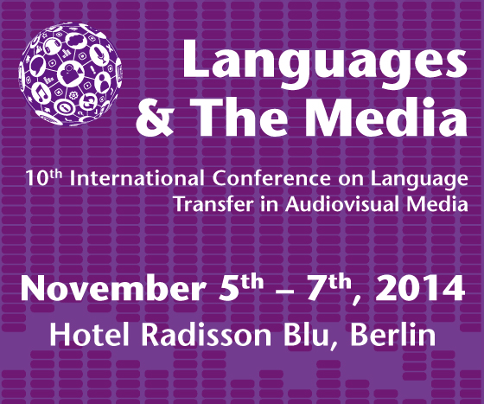
Exposure to lots of access
Working in the English-speaking world we are very privileged because there is so much accessible content in our language and the technology developments often happen in the English language first. The conference draws on experience and practical knowledge from all over the globe. Earlier conferences were quite Western European focussed, but now we are seeing presentations from places like Thailand, United Arab Emirates and Russia. This diversity of knowledge often illustrates clever, practical approaches that are taken when the software just isn’t going to be developed, or the market is not quite big enough to encourage more competition. I always learn a new way of approaching something from their experiences.
Audio description
In Australia we have a very mixed audio description (AD) service, great levels in cinema and DVD, and a stop-start approach in television. The ADLAB session is all about a project that I worked on as a special advisor. Run by Christopher Taylor from the University of Trieste, it is a great snapshot of where AD is in Europe and what barriers it is facing. Supporting this is the work of Remael and Vercauteren, practical Belgian academics whose work is always focussed on making real-world access production more streamlined. The presentation from Thailand on AD in that country will just be plain fascinating to see what is being developed in our close neighbour.
HbbTV
New technology standards for television always herald new access approaches. The hybrid broadcast broadband TV (HbbTV) wave has hit Australia and in simple terms allows proper integration between broadcast TV and online. Four interesting presentations in this session explore practical technical aspects for caption delivery, viewer preferences and the challenge of keeping content access working across different devices. All very current and very relevant to issues facing Australia just around the corner.
Access to live events
Access isn’t just about digital media—a growing area of service is for live events from opera to delivering services in museums. These services share some of the challenges of making live television accessible, but often with a high degree of unpredictability. The presentations look at specific situations and a survey of access in museums, and gathering hard data about access is an important first step to map out where to go next.
Subtitles (captions) for Deaf and hard of hearing
A great session on the most established of access services, but the interest here is the angles taken. First a presentation on how do you provide the best captions for children, in this instance with a Spanish approach. As education access is a major focus for Media Access Australia, real-world experience is a powerful tool in advocating for more services. Red Bee Media will cover another always-debated topic, do we provide verbatim captions or edit to help reading speed issues? Finally, the personal experiences of Dawn Jones, a well-known caption user, will help us remember the ultimate audience that access services are created for.
Of course I haven’t mentioned the Access 2020 – Can We Predict the Future? session that I am hosting with a range of experts from access services to broadcasters and technologists. It is likely to be the highlight of the conference (but I am biased) and is subject to a separate preview.
Languages and the Media
5-7 November 2014, Berlin Germany
There will be follow up analysis and reporting from the conference in the coming weeks.
Top of page

